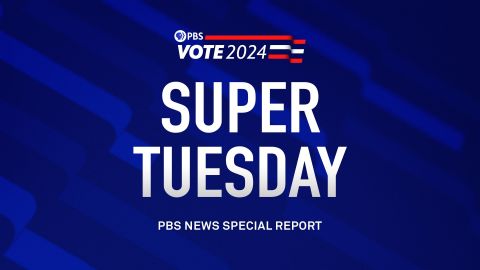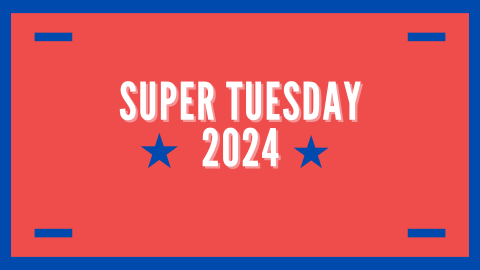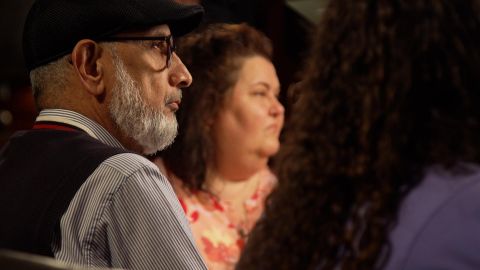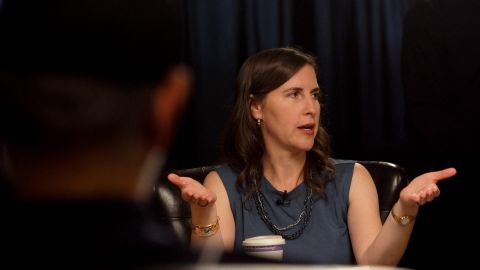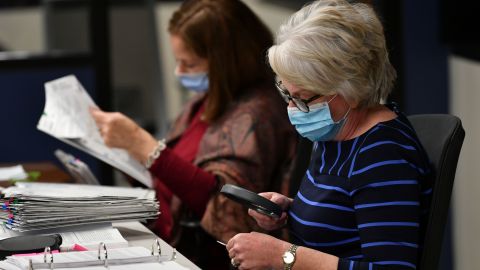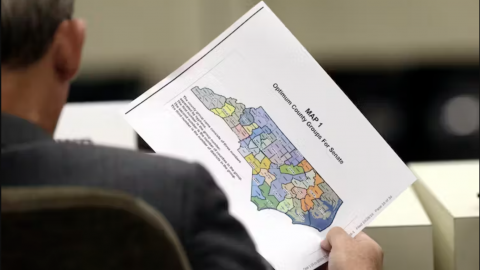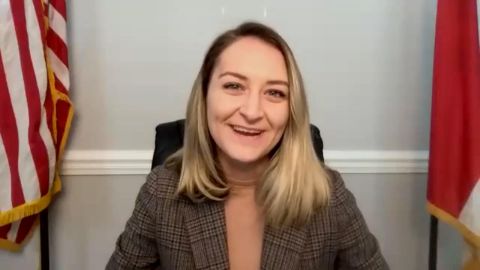- [Donna] This week we take a deep dive into Governor Roy Cooper's final State of the State Address, and a new measure to increase penalties for rioting passes the state legislature.
This is "State Lines."
- [Announcer] Quality public television is made possible through the financial contributions of viewers like you who invite you to join them in supporting PBSNC.
[moving cheery music] ♪ - Hello, I'm Donna King.
Welcome to "State Lines."
Joining us this week is former North Carolina Attorney General Rufus Edmisten, Senator Amy Galey of Alamance County, Dawn Vaughan of the News and Observer, and political analyst, Pat Ryan.
Thank you for joining us today.
I appreciate all of you being here.
We've got a lot of news to cover.
Let's start off with North Carolina Governor Roy Cooper gave his fourth and final State of the State Address on Monday night.
He focused on the state's history of innovation, the strong economy, and called for more state spending on education, green energy, and the passage of Medicaid expansion.
So it was a really interesting audience there.
I think it really touched on a lot of his goals throughout his tenure as governor.
Let's hear a little bit about what he had to say.
- Guys, finally, we all now agree on Medicaid expansion.
We all now agree on how to do it, and we all now agree on what other healthcare laws will be changed with it, for mental health, for working families, for rural hospitals, for a healthier North Carolina, for 1.8 billion dollars that we cannot afford to leave behind.
Let's expand Medicaid now.
[audience applauding and cheering] - That was a pretty powerful moment there in the State of the State Address.
Tell me what your thoughts were as you watched that.
You've sat through a lot of these, you've been in the audience, you've seen governors present this.
What were your thoughts about this one?
- Well Donna, I sat through eight of them as a council state member, and I thought this is the dance.
Always the dance, but not necessarily a mating dance.
[chuckling] They come in, and the governor did a good job of putting his folks in the audience.
He had the pomp and circumstances.
And then he gets down to outlining what he thinks has been good about his administration.
And then he goes into the guts of it, which I liked.
And it wasn't as contentious as I thought it might be.
And I think he's saying, look this is gonna be one of conciliation.
Now here's what I worry about.
How much to get Medicaid expansion does he have to give up in the budget?
How many powers will he allow them to take away from him?
And so that's the big question because it's gonna go in the budget, and that's where all the mischief comes on.
- Yeah, sure, so Dawn you were watching this pretty closely.
Do you think his messages landed with Democrats or Republicans?
- I don't know if everyone was hanging on every word.
You know, I was sitting in the gallery, and a lot of the lawmakers were on their phones, or looking off thinking about dinner, that sort of thing.
I think they were listening, you know, to the highlights.
But it's about being there.
It's the whole scene together, and it's fun.
I love that kind of stuff.
And just the, you know, that it starts, and Speaker Moore is up at the front, and then leaves and then the Senate session starts and they come in and then Cooper comes in.
And the press, and I'm sure all the lawmakers and everyone else are watching too, is the interactions with everybody.
You know, who is the governor going to shake hands with, or not shake hands with, or acknowledge, or dodge, or who's gonna reach out and that sort of thing.
And then watching all of Council of State come in, and the Supreme Court.
And then once he starts talking, I noticed, 'cause you know I was leaning over, kind of seeing what the reaction from the lawmakers were, and everybody claps for the first, I don't know, couple pages of the speech.
And then it changes a little bit.
And then the Medicaid expansion, I noticed that Republicans clapped, and then Cooper kept talking about it.
And there's a little less clapping.. And because Cooper's using this as his, you know it's his second term.
He can't run for a third consecutive term, so it was his highlight reel.
So he wants all the wins, and you know, people have manners and will give him some of it, but not all of it, because obviously there's a partisan divide.
And he wants expansion now, not with the budget, as you were saying which is when you know all the interesting stuff happens.
- Sure, now Lieutenant Governor Mark Robinson, he delivered the response, he was presiding over the event, so pre-taped it and provided the response.
Let's hear a little bit about what he had to say.
- Since Republicans were elected to the majority in the General Assembly, they have implemented common sense economic policies to ensure that you can keep more of your hard-earned money.
And they've been good stewards of your money, like your family, they've had to set a budget, and stick to it.
That fiscal responsibility resulted in historic economic growth.
The Republican-led General Assembly turned a state that was billions of dollars in debt, and struggling financially, into an economic powerhouse.
- Interesting, Senator Galey, tell me your thoughts.
That's something that Republicans have been saying for quite a while.
What do you think about the response?
- Well, absolutely it's true that when the Republicans took the majority the state of North Carolina was really a fiscal wreck.
And there were a lot of hard decisions that had to be made by the people that were serving at the time.
And we can see the results today, that North Carolina is thriving and growing.
It was really, one thing that was refreshing about the governor's speech Monday night, was that he gave due credit to where it should be, with the legislature and the decisions that have been made over time that have put the state on the solid economic footing that it is.
I was disappointed in the really partisan tone of the governor's speech.
I was there, I was listening, I did pay attention, and I thought that it was a very, very partisan speech.
I was really disappointed that he mentioned the Leandro case, especially with the Supreme Court Justice is there and in attendance.
I thought honestly that that was inappropriate to bring up a pending court case in front of the people that are going to be responsible for making those decisions.
I thought it was a partisan speech from somebody who likes to tout his nonpartisan extension when he's given the chance to reach out a hand to the General Assembly, in their presence.
I didn't feel like he really did that.
- Interesting, now Pat, you're a comms guy, you're a communication guy.
Do you think that this response from Lieutenant Governor Robinson was a campaign speech, because that's what a lot of people said afterwards?
- Certainly everything that he says and does right now is a reflection of his expected run for governor.
So in that sense of course it's a campaign speech.
Everything is a campaign communications from here on out.
What struck me on both speeches and for different reasons, and this isn't a knock on either one of them, but was how unremarkable they were.
On the governor's front.
we're six years into a relationship here with between the governor and the legislature, the major policy flashpoints are all out there on the table.
I think even in 2020, both Governor Cooper and Senator Berger and Speaker Moore all said, " Well we're all here again.
We're all the same people.
We've all been returned to power."
And so there's really, I think, a well worn sort of track on the relationship and on what they're going to be talking about.
And nothing new really emerged from that speech, nor should it.
And on the Lieutenant Governor's side he earned some rare praise from the news and observer editorial board in sort of discussing how he stuck to pretty traditional Republican messaging.
- Very interesting.
- Can I mention something?
I wish the governor had talked more about gun violence and children.
He mentioned that in one sentence, I know what you do in a state of the state address.
You want to say a name of some organization.
You get great pressure to say it but I wish he'd said more than a sentence about the scourge we have today of gun violence among children and doing something about responsibility.
And I'm the son of an old wildlife protector, so I know all about weapons and parents need to be held accountable for letting these guns get in the hands of children.
- I think we're going to be hearing a lot about that particularly this legislative session right now.
One of the things that we want to talk about today, this week the state legislature passed a bill intended to strengthen penalties for those convicted of causing injuries, death, or property damages during a riot.
This is something that got a lot of attention.
This bill would also set a 24 hour hold on suspects after their arrest in a riot, in this case stemming from protests.
But certainly other types of of demonstrations were talked about.
A similar bill was vetoed last year, so I'm curious to hear what you think.
So, you know what, actually, let's start with you Senator Galey.
Tell me what you, what your thoughts were on this.
- I think that to shroud civil unrest and looting and rioting under the First Amendment and say that we can't do anything or we can't strengthen these penalties for people who intentionally and willfully destroy other people's property and put lives at risk, we can't do that because we don't want to interfere with their right to protest.
There's no right to destroy other people's stuff.
There's no right to put other people in fear of their lives or to jeopardize other people.
And you can do both.
You can peacefully protest and make your point without smashing out windows or terrorizing the public.
And I think that that is what the bill is really getting at increasing the deterrence.
One of the purposes of the law is to deter bad behavior.
Apparently the laws that we have had are not strong enough to do that.
And so that is the purpose of the bill.
- Sure.
There are some opponents that came to this bill.
Dawn, tell me what they said.
They said, look, this hold means people could lose their jobs if they're the ones out, you know, protesting.
You know, they're out there because they're protesting, you know, what they think is over-policing.
Tell me a little bit about what the opponents were saying.
- I think a lot of the arguments were saying, or the same as when it happened before, this is Speaker Moore's bill that he wanted after the, I guess it was 2020, the protests and riots, rioting that had happened.
And of course Cooper vetoed it because there was no super majority.
Now the Senate had, Republicans have a have a super majority.
So the opposition from Democrats isn't all Democrats.
And one the very key Democrat as House member representative Shelly Wellingham, who is former law enforcement himself.
And he supports it and several other Democrats too.
But the focus is a lot looking at him because he supports, he supports the bill.
And the numbers have changed.
You talked about, oh, it's been all these years of everyone working together and Cooper-Berger-Moore but the shift a little bit now with the super majority in the Senate and just one away from in the house.
But it looks like it's not just one Democrat.
I mean they, the Republicans need one Democrat to vote with them, but it would be more so, I think that was the, what I noticed this time that it with the debate is that there are, there's more democratic support.
And they don't see it as being a problem.
Of course, you know other people do and they're worried about the effect of it.
- Right.
Do you think that he'll veto it?
What do you think?
- Well the only thing that's the same from the last time this bill worked its way through is the words that are on the page.
Everything else is different.
The political environment is different.
The make for the legislature is different.
And the politics of, it's weird to say the politics of rioting have changed quite a bit since 2020.
You know, there were some corners in 2020 that expressed some level of sympathy with the rioters saying, well they have the right to be angry.
But no matter how sympathetic the cause, in my opinion rioting is never acceptable, right?
But that dynamic has changed so much that just this past week, a democratic US Senate and Democratic president essentially struck down a District of Columbia bill that they perceived as two lax on crime.
And so, even on the democratic side the politics of this have changed dramatically.
I, it'll be interesting to see what the governor does because the threat of a veto override is real and the politics are different.
- Sure.
Now, we've talked a lot about this civil discourse.
Right?
Tell me what your thoughts are that the need for this bill first and what you've seen based on your experience over the years in public policy and in politics.
- Well, I'm going to go with the senator here.
Basically, I don't like the 24 holding period because I don't know where that is in any other law we have.
That's a little dangerous there.
However, the line there, I've looked at it constitutionally from the North Carolina Constitution, the Federal Constitution, I don't see anything wrong with it.
It says specifically these are the things you punish for abhorrent behavior.
Now, I have to confess I'm a little bit prejudiced cause my office sat right in the middle of all that going on downtown.
And they were not peaceful protestors under any circumstance.
And I think what it does is give a bad name to those folks who do want to protest and do it lawfully.
And I noticed that a lot of the arrests were from out of towners.
There's no question in my mind that this is a needed law and one that will pass constitutional mustard.
- Interesting.
Interesting.
So, 10 days, is that right?
He has 10 days to, to act on it?
- Yes.
- He could let it become law without his signature if he does, because this would be the first a Vito override.
And it looks like he, that would happen.
- He might waste one on that bond though.
He might waste a veto.
That's it, the way it looks right now.
I know she added Willingham.
He's a solid good man, - Mm-hmm.
- and he knows from past experience that these kinds of behavior are just abhorrent.
- Mm-hmm, very interesting.
- If I could address the 24-hour hold aspect of it - [Host] Sure.
I think that there is a precedent for that in the domestic violence field.
I think domestic violence defendants can be held - - [Edmisten] Yes.
for a period of time.
And also my understanding is that the reason for that that that was actually included in the bill was that officers would arrest and detain people from the scene and then they would bond out before or be released before the officer could finish the paperwork and they would be right back out at this, at the scene.
- That could - - It was a revolving door.
So I think the purpose of that hold is to increase the deterrent effect where people understand - - Uh-huh.
- if you know, if you're caught at the scene, you can be held and the bill says that a person may be held, - [Host] Sure.
- Not that they shall be held.
So the judicial official, the magistrate - - still has the opportunity - - Very interesting.
to let them go if they feel like it's appropriate.
- We'll be talking a lot about that to come.
But one of the other things that caught my attention this week, North Carolina charter schools could offer virtual instruction under a bill that passed the State House this week.
House Bill 149 would open the door for local and statewide virtual charter schools.
Now, individual charter schools could apply to create virtual academies if they're approved by the State Board of Education.
Now that bill is now with the Senate.
So you've worked a lot on education I'll come right back to you.
Tell me a little bit, I know it's a House bill what do you think about this from the Senate's perspective and your role in education on the education committee?
- Right, well, we have to take a look at the bill - Mm-hmm.
- and review it.
I'm not taking a position today - - Sure.
- on whether or not I'm, I support the bill or not.
But I think that it is important that parents have choice.
I completely support school choice.
Some people had expressed concerns that the virtual charters did not have a great track record.
- Mm-hmm.
- But I think it's really important to reflect on that the students who were involved in these virtual charters, they may be seriously ill - - [Host] Mm-hmm.
- and unable to attend school, or they may have experienced bullying.
They may have some kind of special needs where it's difficult for them to attend school in person.
So the relative, the fact that the virtual charters don't have as great as school grades - Mm-hmm.
- as maybe some others do.
Maybe a reflection more of the student population that they're serving, rather than the inherent quality of the school itself.
- Sure, Dawn, tell me what your thoughts are when you're covering this.
We're seeing a lot more of these kinds of pieces of legislation.
- Well, I remember the whole state arguing about virtual school for a very long time.
- [Host] Sure, yeah.
- And it being a really big deal when you were still working for Senator Burger - Sure.
- and the compromise there and all of why virtual school was terrible, you know?
- [Host] Right.
- So it's interesting to see that there's, it wasn't terrible for everybody.
And as far as what people want to provide this, this avenue, if that's the right thing for for that student and their families.
- [Host] Sure.
- But they're, because of all those things that came up when schools were closed or in person I think you need to factor in that.
And then that's an interesting point about the rating of schools and some sort of accountability to make sure that they're doing what they should be but also providing this outlet for if that's what works best for the student.
- Sure, sure.
Tell me your thoughts were we, think education's at a crossroads that this is keeping up or do you, you think it's - - Well - - undermining?
- Well, I'm a pretty strong advocate of public schools, - Mm-hmm.
- but it doesn't mean that you can't have the charter schools in the purpose in the beginning was to let people experiment - [Host] Mm-hmm.
and how are you gonna let that be if you don't have a virtual possibility in the schools.
I am alarmed a little bit about the corporatization of virtual schools.
I think that a good many of 'em now are run by national companies.
I don't particularly like that trend.
- [Host] Okay.
- And so that's my take.
- Very interesting.
Now, Pat, you know a lot about the school choice movement, tell me what your thoughts are about this.
- Sure.
- Mm-hmm.
- So I do work with the North Carolina's Coalition for Charter Schools, just disclosure, the, I think the key distinction here to Dawn's point, is forcing all students to go to virtual school.
I think we can probably agree now is a disaster, right?
The distinction here is, and Senator Galey's point is there are some students that for whatever reason may need or wish to attend virtual charter school.
Now, I, my wife and I are fortunate that we can drop our daughter off at school in the morning, pick her up from school in the afternoon.
I have a steady job in one place, right, we're not moving around a lot.
- Mm-hmm.
- Not all households have that, you know, have that privilege or that good fortune.
And so I can imagine any number of scenarios where a child may need or wish to, to attend school virtually.
I don't think that virtual school is a great environment.
I wouldn't send my daughter to virtual school.
But sometimes you can't, you can't decide between the two.
Sometimes there's only one option for - - Sure.
- any number of reasons.
And that option should be available to students.
- Sure, sure.
So we'll watch this as it, the idea goes through the House and see what they have to say.
Another one, so a Convention of State's Resolution passed the House this week, if it passes the Senate North Carolina would become the 20th state to call for tapping Article Five of the US Constitution to convene a Convention of States outside of Congress.
So this is really interesting to me.
I'm, was kind of surprised to see it.
Pat, fill us in a little bit on what this means.
What's a Convention of States?
- Yeah, it's, I sort of love this issue.
- [Host] Uh-huh.
- It's a little bit wild and you have a lot of characters involved, - Right.
- which I think is great.
This is what the government is supposed to be, right?
In effect, there is this largely grassroots movement that began in 2013 that are just lobbying state legislatures to allow for or call a Convention of States.
And if 34 states out of, of course the 50 in the country decide to do so, then there will be a Convention of States.
Each state will send delegates and they'll discuss amending the US Constitution.
Now this particular movement is focused on things like fiscal restraint.
- Sure.
- Reigning in what they perceive as sort of overreaching powers of the Federal Government.
And a few days a year, as Senator Galey knows, there'll be this large mass of people dressed colorfully.
- [Senator Galey] The llama.
- I think there was a llama there at one point.
It's just a whole, but that's like this is their Constitution.
- Sure.
- It's not out, it's not the policymaker it's their Constitution.
If they want to come and lobby their legislators to amend their own Constitution.
I think that's great you know.
- Sure.
- I think it's a, just a fascinating sort of issue to keep track of.
And I'd be interested in the Former Attorney General's take on some of the, the legalities and some of the other - - [Host] Tell us, what do you think?
risks associated with that.
Cause I know there's a lot there.
- This thing is very personal to me.
- [Host] Uh-huh.
- Let me not age myself, in 1972, where I had no business being, I was the Chief Counsel and Staff Director at 31 years old of the Senate subcommittee on separation of powers.
Well, this came up, 'cause it's really the only, the constitution's only a attempted referendum, if you think about it.
And there were no procedures anywhere for this.
So you'd have that mad bunch of people coming up to amend the constitution always with no procedures and guidelines.
And so we produced and they're in the archives now, so go at it.
We have, under a little bit of my help, guidelines now for such a thing to happen.
But I have to point out that it never happened before and it probably won't again because you can't get it all together because there're really not, there are no guidelines and no great will on the part of the legislature to do it.
It's sort of a thing that goes in one ear and out the other ear.
But I'd like the provision, but it's just hard to do.
- Very interesting.
So you were at the press conference, right?
They had a press conference about, Rick Santorum come in, talks about some, tell me what your thoughts were.
Why do they wanna do this?
- I wasn't at the press conference, but I have seen them, I guess a couple years now.
I think what you were saying about just the government is a bunch of characters, which is true, and seeing how the process is and anything where you're questioning the people that are telling you how to do things and you wanna change it, I think that's, it would be fun to cover, honestly.
That's my takeaway on why they do that.
But reporters asked Senator Berger the other day, "What does the Senate wanna do with this?"
And they don't know yet.
The Senate usually isn't as interested in things that the House is, and I'll leave it at that.
- Senator Galey, what do you think?
What are your thoughts on why would we want to do this, do you think, and is there an appetite for this on the Senate side?
- Yeah, with Convention of States, the most important thing to remember is why do people want it?
It's not to get bogged down in the who, where, what, when, how are we gonna have a Convention of States, it's what's the point behind the whole thing?
They want term limits and they want to do something about the national debt.
They're worried about our national out of control spending.
And in fact, very recently, the editorial board of "The Washington Post," incredibly liberal paper, has started to wring its hands and be concerned about the size of our national debt.
It's 98% of our gross domestic national product.
It's the equivalent of our national debt now.
And experts say that when it reaches that 100% one-to-one ratio, then the country is really in trouble and you start to have to sacrifice things like national security and Social Security and Medicare and other entitlement payments.
And so with Convention of States, it's super important to remember people are concerned about the age of people in Congress and how people get elected to Congress and don't ever seem to leave, which we can't say is true about the North Carolina General Assembly.
The average term in the General assembly is much, much lower than it is for Congress.
And really sincere and legitimate concerns about the size of our national debt.
That's what Convention of States is about.
- I'm really interested in seeing how this turns out.
We've got a only a couple minutes left in the show.
I wanna go around and see what else has caught your attention.
What's catching my attention, of course, is this ongoing drumbeat with Medicaid expansion running two things at once.
They're running a Medicaid expansion bill and then also talking about it going into the budget.
So I'm really curious to see what happens next week.
It seems to be moving at top speed.
Pat, tell me what you're watching this week.
- Yeah, so I mean, look, it's been 11 years in the making, right?
People have been talking about it for a very long time.
Dawn can correct me on process here, but I think the general sense is, okay, well, we have a deal and there's a deal on certificate of need reform, a longstanding priority among some legislators.
And there's, of course, a deal on Medicaid expansion.
Let's get that deal done and push it through the legislature.
We all agree, we've been talking about this for a long time, so let's do it.
There are, of course, some multi-billion dollar impacts to the budget, and so the bill that's going through will sort of connect those impacts to passage of the state budget.
- Right, right, We're running out of time, I'm gonna keep moving around.
- Go ahead, yep, go ahead.
- Tell me what you're watching this week.
- I want to brag about your editorial in the last "Carolina Journal," civility.
- [Moderator] You picked the right one.
- Civility, getting along with people, and having empathy, it can work.
- Right, right, Dawn, what are you watching this week?
- The Democrats and Republicans are working together with early childhood caucus, the childcare crisis, so that's something.
They have five bills that both parties support that they're trying to move ahead.
And for all the disagreements in the legislature, there is common ground on a lot of things.
Now it's Medicaid expansion.
Representative Lambeth said, "We've discussed it, we've cussed as it moved through committee, and it's actually happening."
Everyone agrees, so knock on wood, told the budget has to pass.
- And Senator Galey, we are running outta time.
I hope you'll come back and join us.
Do you have something 10 seconds to share with us?
- 2023, 60% of our North Carolina school students are not proficient in reading.
That's ridiculous and that's gotta change.
- All right, I'm looking forward to talking more about that.
Thank you all for being here, I really appreciate it.
That's it for us this week.
Thank you again, and we'll see you next time on "State Lines," have a great weekend.
[upbeat music] ♪ [upbeat music] ♪ [upbeat music] - [Announcer] Quality public television is made possible through the financial contributions of viewers like you, who invite you to join them in supporting PBS NC.
[upbeat music]

